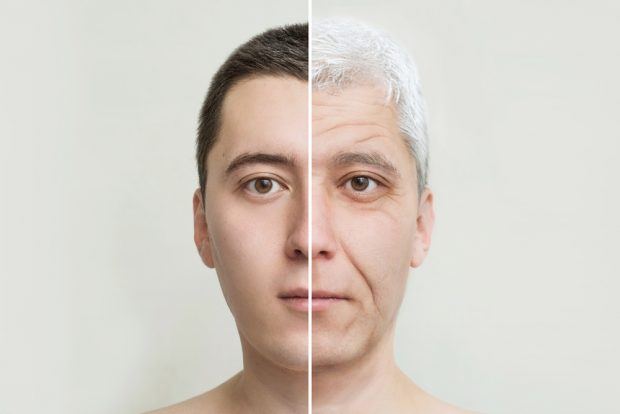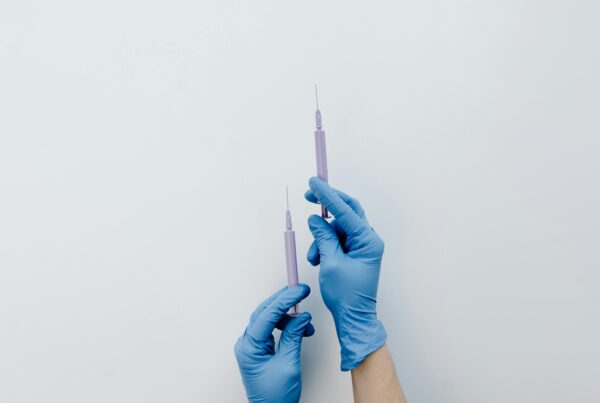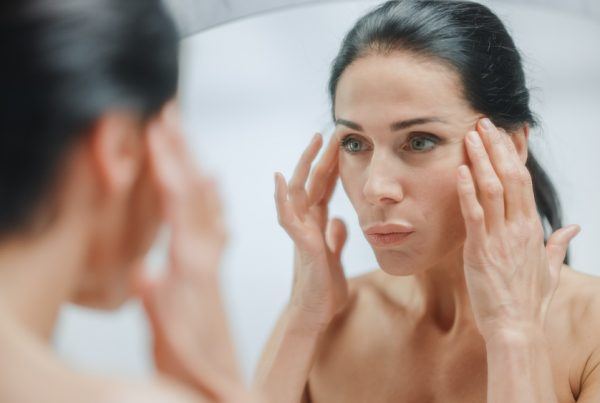Collagen is a naturally occurring protein that serves as a building block for skin, bones, muscles, tendons, and ligaments. It is the most abundant protein in the human body. It forms a scaffold of support, lending strength and structure to hold the body’s cells together. In addition, collagen (together with elastin and hyaluronic acid) is largely responsible for plump, youthful, and healthy-looking skin.
While turnover is relatively slow, the skin’s collagen is in a constant cycle of degradation and replenishment. Unfortunately, with time and age, the rate of regeneration slows down, and it’s estimated that, from our mid-20s, collagen content in the skin decreases by 1% per year. As a consequence, fine wrinkles, sagging, and a loss of the skin’s vigor become more and more apparent.
While genetics play a major role in your skin’s collagen content, extrinsic factors also have an effect. The term “exposome” refers to the sum of all external factors that an individual is exposed to throughout their lifetime – essentially the environmental equivalent of the human genome. Excess, unprotected sun exposure not only increases your risk of skin cancers, but also contributes to shifting the balance of collagen to loss, and replenishment towards a collagen deficit. For decades, sun exposure was thought to be virtually the only source of extrinsic skin aging. However, there is growing evidence that air pollution also significantly contributes to its degradation and skin aging via oxidative stressors.

Irzhanova Asel/Shutterstock
So, how do we fix the decline in our valuable collagen?
As with virtually all medical conditions, living a healthy lifestyle inevitably improves your outcome. Avoid the harsh midday sun, use high-quality, broad-spectrum sunscreen frequently throughout the day, eat a balanced diet, and make sure you’re getting enough sleep. While you may not have much of a choice when it comes to your exposure to air pollution, it will be well worth your effort to add good-quality topical vitamin C, retinol/retinoic acid, and oral collagen supplementation to your daily routine, as these have all shown to be beneficial in improving your collagen regeneration rate.
Step into your aesthetic doctor’s rooms and you’ll gain access to a whole host of lunchtime, minimally invasive medical procedures. Microneedling involves administering minute micropunctures to the skin, and various energy-based devices may use high-intensity ultrasound, lasers, or radiofrequency to deliver a controlled thermal injury to the skin, all resulting in collagen stimulation.
Biostimulation represents the latest advancement in aesthetic medicine. During this procedure, a medical product is placed directly under the skin. The body’s response leads to a healing cascade and ultimately results in a rapid increase in collagen production. Depending on the specific medication used (hyaluronic acid, calcium hydroxylapatite, polycaprolactone, or poly-L-lactic acid), the beneficial effects may be long-lasting, possibly up to 25 months in duration.
Conclusion
With a plethora of skincare products on every aisle, more tubs of collagen powder than you can count, and the availability of a growing number of aesthetic medical procedures, it may be a little overwhelming to successfully navigate your way to youthful levels of collagen. Thus, consulting with a reputable aesthetic medical professional should be your first port of call, to get your condition comprehensively assessed, and to identify the most appropriate home care regime and treatment approach, tailored to your specific needs.
www.aestheticdoctors.co.za





![women [longevity live]](https://longevitylive.com/wp-content/uploads/2020/01/photo-of-women-walking-down-the-street-1116984-100x100.jpg)










